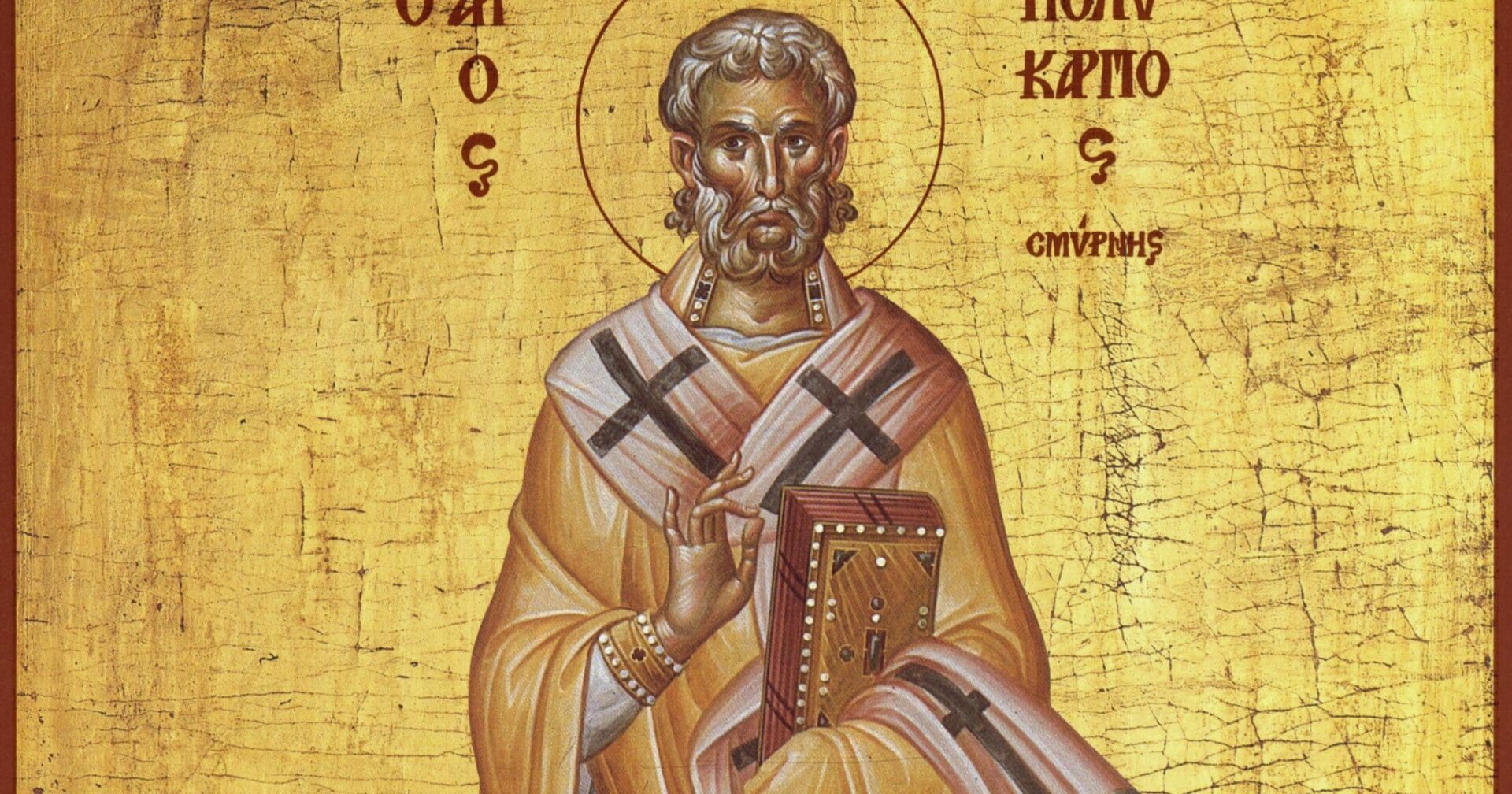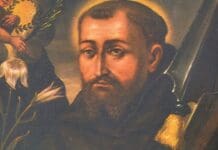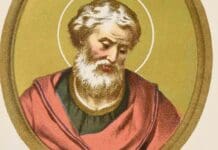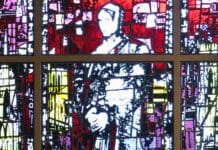Saint Polycarp, born around 69 A.D. and dying in 155 A.D., served as the Bishop of Smyrna, present-day Izmir, Turkey. He emerged as a pivotal Christian figure in Roman Asia Minor, bridging the gap between the apostolic traditions and the second-century Church. Despite the scarcity of detailed accounts of his life, Polycarp is celebrated mainly for his profound martyrdom, vividly captured in the Martyrium Polycarpi. Converted to Christianity by St. John the Evangelist around 80 A.D., Polycarp was deeply influenced by his teachings and those who had directly encountered Christ. His appointment as the Bishop of Smyrna around 96 A.D. by the Apostles underscores his significance in the early Church.
Polycarp’s close association with St. Ignatius of Antioch, another key figure in the early Christian era, highlights his critical role in linking the apostolic foundations with the patristic developments, particularly in Christian Asia Minor. His encounter with Ignatius, en route to martyrdom in Rome, is marked by Ignatius’s description of Polycarp being adorned with the “garment of grace.” Polycarp’s staunch defense of Christian orthodoxy against heresies like Marcionism and Valentinianism, coupled with his epistle to the Philippians, underscores his theological depth. His letter is particularly notable for its references to New Testament scriptures, evidencing the early circulation of these texts.
Polycarp’s arrest and subsequent martyrdom in Smyrna followed his return from Rome, where he had been discussing the Easter date with Pope Anicetus. Facing his captors with a serene acceptance of God’s will, Polycarp utilized his final moments to pray for the universal Church. His martyrdom, amidst the raucous atmosphere of the Smyrna stadium, was marked by divine encouragement, as a heavenly voice bolstered his resolve. Confronted by the Roman proconsul, Polycarp’s refusal to renounce his faith or to blaspheme Christ, even under threat of death by fire or beasts, exemplifies his unwavering devotion and courage.
Polycarp’s execution by burning, an attempt thwarted by miraculous intervention as the flames encircled but did not consume him, led to his death by stabbing. The subsequent handling of his body, sought after by both Jews and Christians, and the decision to burn his remains to prevent any form of idolatry, culminates in the veneration of Polycarp’s bones as relics. His legacy, enshrined in the celebration of his heavenly birthday, continues to inspire the faithful, reflecting the enduring impact of his martyrdom and teachings on the Christian tradition.
Editorial credit: hramikona / Shutterstock.com


















St. Polycarp please pray for me.
Internet jobs are a growing industry and an exciting opportunity to save companies and employees time and money. Flexible working, whether full-time or seasonal, exists in almost all industries; ox You just need to know where to look.
Look here…… https://MoneyWorking12.blogspot.com
St Polycarp, by your life and heroic martyrdom, your story has filled my heart with joy and has blessed me today.
Please Pray for me dear St Polycarp!
Saint Polycarp pray for us amen
His legacy remains through modern relatives such as Polyfiller.
Moron…
Pray that Evan may come to personally know Christ in a Eternal Relationship like Polycarp did; to the Glory of God !
St. Polycap pray for me so that I do the rightful things, in Jesus name.
St polycarp pray for us
St.Polycarp,pray for me so that I may remain strong in the faith.Pray also for our Holy Catholic Church,our Holy Father and our Bishops around the word,so that they may teach us the true faith from the Holy Apostles and Fathers,Amen!!
St. Polycarp, pray for so that all the closed doors in my quest for education may be opened. Pray for my sister Sharon so that she may be delivered from the bandage of the evil spirits that constantly attack her.
[…] Source link […]
Saint Polycarp, pray for us!
God of all creation,
who were pleased to give the Bishop Saint Polycarp
a place in the company of the Martyrs,
grant, through his intercession,
that, sharing with him in the chalice of Christ,
we may rise through the Holy Spirit to eternal life.
Through our Lord Jesus Christ, Your Son,
who lives and reigns with You
in the unity of the Holy Spirit,
one God, for ever and ever.
Amen.
St. Polycarp, pray for all Bishops.
O St. Polycarp intercede all those being persecuted for the Church and her teachings.
Hi there to every one, the contents existing at this
web site are truly amazing for people experience, well, keep
up the nice work fellows.
O St Polycarp, you are triumphant on Christ Jesus, pray for me so that I will overcome. Amen.
Internet jobs are a growing industry and an exciting opportunity to save companies and employees time and money. Flexible working, whether full-time or seasonal, exists in almost all industries; oc You just need to know where to look.
Look here…… https://MoneyWorking12.blogspot.com